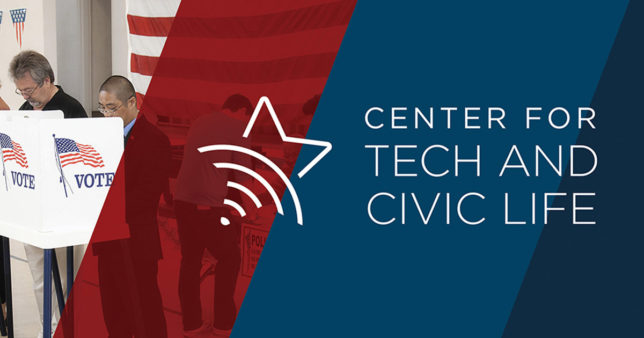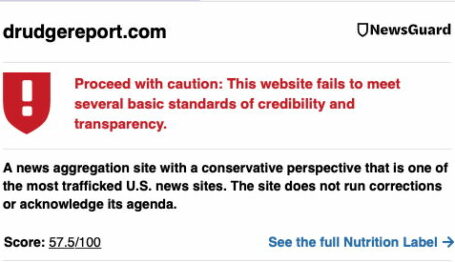Deception & Misdirection
The Origins of “Zuck Bucks”: Center for Tech and Civic Life


The Origins of “Zuck Bucks” (full series)
Getting Out the (Democratic) Vote | New Organizing Institute
Reaching the Emerging Majority | Center for Tech and Civic Life
Center for Tech and Civic Life
Few details remain about the involvement of CTCL’s co-founders in NOI’s registration and electioneering work. Yet we know they were present for both operations. Tiana Epps-Johnson was NOI’s deputy data manager in 2010 before becoming head of the group’s Voting Information Project (2010–2012) and later election administration director (2012–2015).
Whitney May worked with the Voting Information Project from 2012 to 2013, then was an election administration government liaison under Epps-Johnson from 2013 to 2015. Donny Bridges was research director for NOI’s Candidate Project (2011–2012), research director for the group’s Ballot Information Project (2012), and then finally election administration research director alongside May and Epps-Johnson from 2012 to 2015.
Few details remain about these projects, but they undoubtedly tied in to NOI’s registration research and campaign training programs—which were the organization’s selling points to donors and allies, after all. It’s unthinkable that relatively senior staffers May, Bridges, and Epps-Johnson weren’t involved in them.
The Origin of Zuck Bucks
The question remains: Who devised “Zuck bucks” in the 2020 election and when? There are a few theories.
First, COVID-19 provided the cover for a private grants program but probably didn’t spur its inception. I’ve estimated that just 24 of the Left’s top voter registration outfits spent a combined $434 million in 2020, a little more than the roughly $400 million Mark Zuckerberg donated to CTCL and the Center for Election Innovation and Research (CEIR) for COVID-19 “relief grants” that year. Given that Zuck bucks paid for numerous drop boxes—powerfully boosting the number of mail-in and absentee ballots collected and bypassing the inept U.S. Postal Service—this seems a natural extension of the Left’s registration and turnout operations. (Both NOI and Corridor Partners’ surveys detailed the benefits of expanding the base of absentee voters nationwide.)
The National Vote at Home Institute, a close CTCL ally, launched its first nationwide vote-by-mail proposal shortly after the COVID-19 lockdowns in March 2020. The group asked states to send mail-in ballots with pre-paid postage to every registered voter, advising them on returning the ballots via mail, polling place, or drop box.
Where this plan was adopted, it created a need for millions of dollars to pay for new drop boxes and mail-in ballot processing equipment. The first of these was Wisconsin, where the state’s five biggest cities devised a joint “Safe Voting Plan” in June 2020 and pitched it to CTCL, asking for $6.3 million to fund roughly 34 drop boxes (among other things). They ultimately got $8.5 million, or 84 percent of all the “relief grants” CTCL paid out to Wisconsin elections offices statewide.
From ground zero in Wisconsin, Zuck bucks soon spread to nearly every other state. But that means that in June 2020 someone had to know that CTCL—whose revenues had never exceeded $3.4 million—had $6 million to spare.
One candidate is CEIR head David Becker, an election lawyer and “hardcore leftist” who did elections lobbying for People for the American Way and later spawned the Election Registration Information Center (ERIC), which mandates member states register eligible voters as part of its voter roll maintenance services.
There’s another possibility: the Arabella Advisors “dark money” network. The Arabella network, run by a shadowy DC consulting firm, specializes in shifting money from liberal donors to activist causes. In 2020 its largest nonprofit, New Venture Fund, granted close to $25 million to CTCL.
We don’t know the original donor behind that sum or when it was granted, but if it was prior to June 2020 that would make the Arabella network the source of Wisconsin’s first Zuck bucks injection. After that program proved viable, the original donor—perhaps Zuckerberg—may have decided to funnel another $350 million through the nearly unknown CTCL so as to avoid the scrutiny that Arabella now attracts from investigative journalists.
To put it another way, Arabella carries the taint of partisanship; CTCL did not.
Todd Shepherd, an investigative journalist writing for the Pennsylvania outlet Broad + Liberty, also suspects Arabella’s involvement in Zuck bucks through the Center for Secure and Modern Elections (CSME), an election “reform” group run by New Venture Fund.
“Emails from Green Bay and Philadelphia clearly show the CSME was operating hand in hand with the CTCL at the earliest possible stages on these grants while calling it the Cities Project,” Shepherd told Capital Research Center.
Even months after the election, persons working for the CSME were still talking to election officials about the CTCL grants while using the name Cities Project. Because of this evidence, I think it’s a very fair question to ask to what degree the CSME may have actually been the originator of the entire effort, and whether the CTCL was just a better front for the project because they had 501(c)(3) status.
Whatever the case may be, one thing’s certain: Americans are getting closer to the truth behind Zuck bucks.



